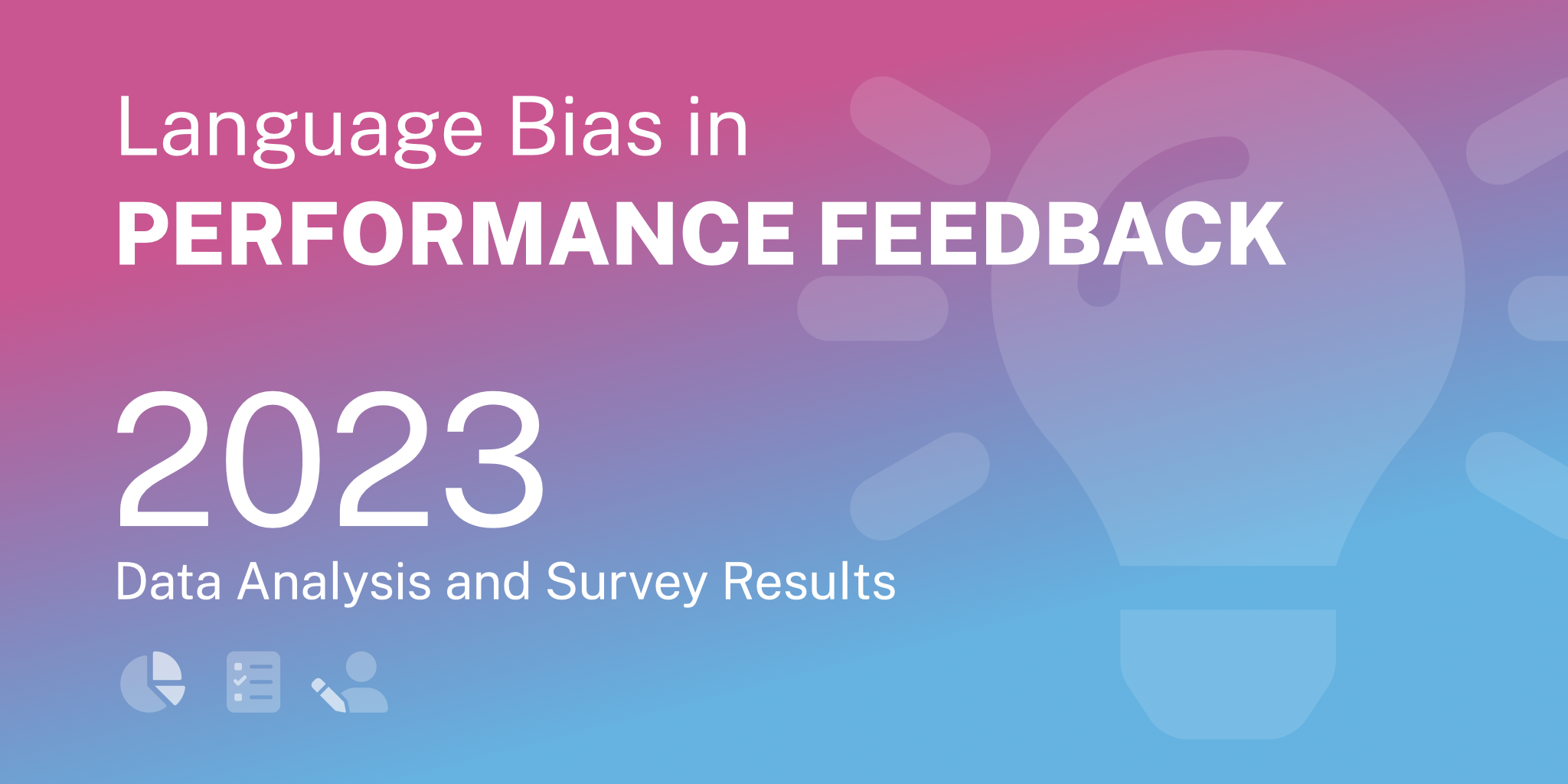How performance feedback quality impacts employee retention

Textio’s 2023 Language Bias in Performance Feedback report exposes troubling patterns in performance management across organizations and industries. Despite countless strides toward workplace equality, bias in performance feedback continues to create staggering disparities in career advancement and employee retention in today’s workplaces.
Last year’s study found that women and people of color receive the lowest-quality feedback, and we see that again this year. But now we’re looking a layer deeper: Does poor feedback affect retention rates? The answer is yes. The data showed that employees subjected to biased feedback are significantly more likely to leave their organizations.
Read on to learn more about the important findings from the 2023 report.
Feedback quality and employee retention
According to the study, 38% of individuals in their current roles exhibit attrition risk, indicating either an intent to leave or active pursuit of other job opportunities. Notably, the data reveals that individuals who receive low-quality feedback are 63% more likely to leave their organizations compared to their counterparts.
One part of giving effective feedback is providing clear expectations and success criteria. Remarkably, 61% of individuals intending to stay had a clear understanding of their work expectations, while only 21% of those planning to leave did.
These findings highlight the connection between the quality of feedback received and employee retention.
Feedback quality and gender and racial biases
There was explicit gender and racial biases in the performance feedback data we analyzed: men are referred to as “ambitious” twice as often as women, while women are described as “helpful” twice as often as men.
The racial bias in feedback is equally concerning, with Hispanic people being labeled “passionate” twice as often as their white counterparts, potentially reinforcing racial stereotypes. Meanwhile, white employees are described as “easy to work with” twice as often as Asian employees.
These findings further underline the pervasive nature of language bias in performance feedback and its potential to perpetuate harmful stereotypes and unequal treatment within the workplace.

The impacts of insufficient feedback
In the study, 17% of respondents explicitly named insufficient feedback as a primary reason for seeking other roles, highlighting the role of quality performance feedback in employee satisfaction and retention.
There were clear disparities among gender identities, with 83% of men stating they understood the requirements for their next promotion, compared to only 71% of women, non-binary, gender-nonconforming, and transgender individuals. The disparity was even more pronounced among Asian people of all gender identities, with only 54% expressing they understood the path to their next promotion.
Just as these findings point to a systemic problem, they also provide some guidance on how companies can tackle language bias in performance feedback. Leaders should invest in resources that help managers address their own unconscious biases, while creating measurable standards for workplace fairness.
Textio makes it radically easier, for all of you. Try it free.
Hedging and insufficient feedback
The study also revealed the impact of “I think” hedging statements in performance reviews, with data showing that employees receiving such feedback are 29% more likely to leave their company within a year.
Alarmingly, Black employees received 26% more unactionable feedback than non-Black employees, despite receiving only 79% as much feedback overall. Additionally, non-binary, gender-nonconforming, and transgender individuals reported receiving insufficient feedback 1.5 times more often than men.
Respect and appreciation in feedback
There are also clear indications of gendered experiences of respect and appreciation in the workplace. Women reported feeling disrespected or underappreciated 1.3 times more often than men.
All these findings stress the urgent need for organizations to confront and combat the deep-rooted biases in their feedback mechanisms to create a more equitable workplace environment and to retain diverse teams.
The insights from our investigation into language bias in performance feedback are both alarming and a call to action. It's clear that to promote an equitable and inclusive workplace and to hang onto talent, organizations must understand and rectify the biases in their feedback processes. Improving feedback quality not only enhances employee retention but also fosters a more supportive and productive work environment.
Addressing language bias in performance feedback starts with awareness and education. To ensure high-quality feedback and improve employee retention, it's crucial to address this issue comprehensively.
We encourage everyone to read the full report for a deeper understanding of these issues. Let's work together to build a future that values all employees.